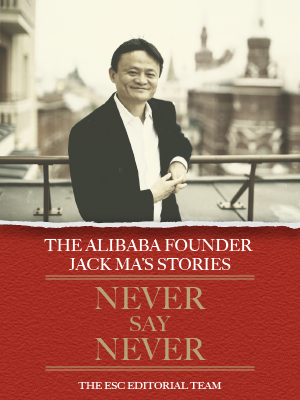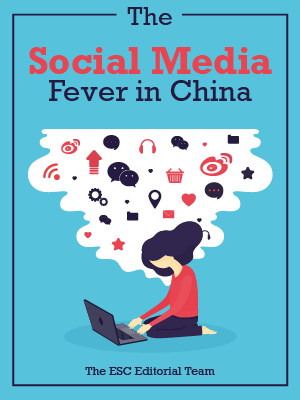Ecommercestrategychina.com uses cookies and other technologies to provide you a better browsing experience. You can get more information regarding the use of cookies, or decline it whenever by clicking Privacy Policy. By using this site or clicking “Okay”, you give us the consent to the use of cookies.
OKAY
For the past year, Chinese technology giants Alibaba and Tencent invested heavily in social media content, which is not considered a core business but a fundamental change in the market environment. This article seeks to review the performance of the two tech giants in terms of content from production to service, and to associate them with their business models.
Tencent focuses on games and content production
As reported, Tencent spent more than 60 billion RMB on content, mainly related to media and games, and invested in more than 700 companies in the industries, compared to 46 billion RMB in 2017. Videos, games, music, and animations have contributed most to the revenue of value-added services, which was 176 billion RMB.
Mobile games were at the heart of Tencent’s business strategy, with revenue of 78 billion RMB, up 24% compared to the previous year, despite growing interventions in the internet sector, which has increased pressure on many Internet firms. Massive investments in world-renowned gaming companies such as Epic Games and SuperCell in recent years, have helped the Chinese giant gain a foothold in the overseas market.
The growth (19.1%) in value-added services is attributable to the increasing subscriptions to video and music streaming platforms. Tencent has also made progress in online video through IP purchases and the production of original content ranging from TV series, animations to documentaries.
The escalating war on social media with ByteDance, maker of China’s most popular short-video app, Douyin, has led Tencent to restructure its major divisions. The six new business units following the organisation’s strategic upgrade last year include corporate development, interactive entertainment, technical engineering, Wechat, cloud and smart industries, and platform and content; the last two were newly established.
As outlined in the 2018 Tencent’ Financial Report, the growth of QQ, its flagship instant communication platform, is impressive. By the end of 2018, 800 million active users were reached each month, with those below 21 years old increasing by 13%. To target the young generation, Tencent unveiled AI-infused special effects and stickers for video chats; the function updates have resulted in a significant increase in short video traffic (over 50%). In addition, QQ has tried to provide content with a focus on entertainment but to use different types, such as e-sports, animation and livestreaming.
WeChat, the other main force in Tencent’s social network layout, was encouraged to use short videos to drive engagement. The new off-and-cuff video feature, similar to Instagram Story, was launched on WeChat in 2018. It is called Time Capsule. With both QQ and WeChat playing an important role in distributing content across their vast user base, Tencent’s advertising revenue was boosted, especially from the News Feed.
Alibaba has suffered a loss in the media and entertainment sector
As we can see in the 2018 Alibaba Financial Report, media and entertainment are not the core business, while they continue to suffer losses. However, the company seems willing to bear the loss and represents the current phase as an investment phase.
Alibaba’s media entities include Youku-Tudou, a video streaming platform, Alibaba Pictures, a film-making company, and UC browser and Taopiaopiao ticketing business, etc. As with Tencent, most of Alibaba’s investment in this area went into the production of original content. The initiatives have reported positive results. The high-quality exclusive content ensured a robust increase in subscribers to Youku.
Alibaba does best in online and offline commerce and it is expected that its various digital media products/services will complement its e-commerce portfolio. “Our strategy is to integrate non-commercial entertainment into our overall consumer offerings. We want to provide a superior user experience while increasing customer loyalty and subscription, as well as advertising revenue, and that relies on the combination of commerce and entertainment businesses,” said Alibaba.
Content is essential for any industry in attracting and retaining users, especially in the Chinese market, where people spend most of their time online and social media to get information. For more content marketing ideas for small and medium-sized enterprises, see Content marketing is a new e-commerce trend of 2018 in China.
Please Login to add comments.

$9.99 $19.98

$9.99 $19.98
By GRLpGpAG December 10th, 2023
555
By GRLpGpAG December 10th, 2023
555
By GRLpGpAG December 10th, 2023
555
By GRLpGpAG December 10th, 2023
555
By GRLpGpAG December 10th, 2023
555
By GRLpGpAG December 10th, 2023
GaAsNenP
By GRLpGpAG December 10th, 2023
-1 OR 2+399-399-1=0+0+0+1 --
By GRLpGpAG December 10th, 2023
-1 OR 2+218-218-1=0+0+0+1
By GRLpGpAG December 10th, 2023
-1' OR 2+90-90-1=0+0+0+1 --
By GRLpGpAG December 10th, 2023
-1' OR 2+424-424-1=0+0+0+1 or 'Ki4g4zJR'='